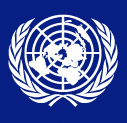Regard’s Contribution to The Civil Society Shadow Report on the UK’s Implementation of the UNCRPD – 22 November 2021

Regard (based and operating in UK) is a national LGBTQI+ Disabled Peoples Organisation founded and run by LGBTQI + Disabled People. Our stated mission is to raise awareness of LGBTQI+ issues within the Disability Community, to increase awareness of Disability issues in the LGBTQI+ Community, to combat social isolation among LGBTQI+ Disabled People, and to campaign on issues that particularly affect LGBTQI+ Disabled People.
In May 2017 we produced a Report to the Pre-sessional Working Group of the UN Committee on the Rights of Persons with Disabilities. Within the Executive Summary Regard identified the Articles in the UNCRPD which had a particular impact on LGBTQI+ Disabled People, and made a number of Recommendations to address measures to ensure inclusion of LGBTQI+ Disabled People:
https://regard.org.uk/regards-submission-to-the-seventh-pre-sessional-working-group-of-the-un-committee-on-the-rights-of-persons-with-disabilities/
Regard has continued to work in line with the mission statement above. We expressed concern within the appropriate forums about isolation, prejudice and discrimination, hate crime and sexual abuse and assault within and outside of domestic environments. All have an intersectional aspect which includes at least one or more of the Protected Characteristics. (Under the Equality Act 2010)
LGBTQI+ Disabled People using Self-directed Social Care (2017)
In October 2017 (after the response to the Shadow Report that year), LGBTQI+ Disabled People and Self-directed social care support was published. It was from a joint research project between The Norah Fry Research Centre (University of Bristol), Regard, Stonewall and the Social Care Institute for Excellence, funded by NHS National Institute for Health Research: https://www.sscr.nihr.ac.uk/PDF/Findings/RF77.pdf
The key findings indicated that LGBTQI+ Disabled People using self-directed support reported many positives from having more choice, control and power. However there were concerns that ‘coming out’ to social care would jeopardise support. The difficulties in recruiting and retaining good PAs, the difficulties in securing support for ‘social hours’ could lead to social isolation.
Assessments would be needed to emphasise the whole person and not as can be the case ignore the sexual orientation or gender identity. There needs to be an emphasis on staff using their professional training, ethical practice and legal obligations to raise equalities issues confidently and sensitivity.
There was found to be a need for more targeted support and information for LGBTQI+ Disabled People as well as more information for the PAs.
This Report highlights the difficulties LGBTQI+ Disabled People living independently and managing their care through Self Directed Social Care Support have in being open about their sexuality or gender identity. This affects their personal care, concept of self identity, opportunities to take part in social activities and sense of isolation.
The impact of Coronavirus and the Pandemic (2020-21)
In March 2020, Regard became one of the DPOs disseminating information about the COVID19 virus and the impact of the Pandemic. Several guidance leaflets were issued by Regard and the dangers of not only social but actual isolation were raised about the LGBTQI+ Disabled People’s specific situation.
The Coronavirus Act 2020 caused concern about the impact of Local Authorities being allowed to relax a proportion of their social care duties. This remains in force until March 2021 with regular reviews: https://lordslibrary.parliament.uk/coronavirus-act-2020-debate-on-temporary-provisions/#share-this
At the time there was also the restricted availability of appropriate care for those who contracted the virus during the First Wave. GPs were asking about Do Not Resuscitate Notices on their patients, and some patients were being advised that their care may become palliative rather that acute. The age of patients became a widely recognised factor, and an area of concern for those who would be considered Older, and therefore more likely to receive no treatment or palliative care.
Those in Residential Social Care settings were locked down and reliant on the Care Staff for all of their interpersonal interactions. The rules regulating contact outside of the Residential Home became draconian and Residents were separated from their relatives, friends, and support structures outside of the Homes.
Residential Care Staff were put at risk due to several factors, including lack of adequate Personal Protective Equipment (PPE) and the use of vacancies within the sector to relieve the pressure on the NHS beds. As they were put at risk, so too were the Residents.
Disabled People living independently in the community and using Self Directed Support became under increased risk from lack of PPE provided and available. Plus as employers they were placed in a confused position due to lack of clarity about Furlough Funds. The impact of the number of patients and the need for more staff and volunteers on the Health Service also made the recruitment of Social Care Staff within the domestic setting very difficult.
Food availability became an issue, especially in the first months of Lockdown 1 as those who were able to buy food in bulk created stock piles of essential items. So much so that many became scarce or difficult to source. This had a profound impact on those who already experienced food poverty, difficulties in preparing or cooking food independently, or lack of access to food outlets or storage.
In May 2020 Regard became very concerned about the vulnerability of LGBTQI+ Disabled People living in Residential Care Homes and submitted evidence to the Women and Equalities Committee into the impact of Coronavirus 19 on ‘protected groups’: https://regard.org.uk/vulnerability-of-disabled-lgbtqi-people-to-coronavirus-in-care-homes/
In it’s evidence, Regard highlighted the particular issues facing LGBTQI+ Disabled People:
• The growing evidence that LGBTQI+ Disabled People with long-term impairments have experienced the mental and physical health impacts of discrimination, a higher rate of HIV, and a greater level of poverty within the wider population.
• That LGBTQI+ Disabled People are more likely to rely on social care due to geographical separation from childhood support, less likelihood to have children, more likely to experience alienation from biological relatives, and less likely to have friends locally away from LGBTQI+ venues.
• That there is significant evidence to demonstrate LGBTQI+ Disabled People face discrimination and difficulties in accessing social care.
Taking into account the factors listed, LGBTQI+ Disabled People are less likely to have support or visits from family and friends, leaving them highly susceptible to abuse or neglect. This in turn impacts negatively on the opportunities to participate and form friendships and relationships within the LGBTQI+ community.
Regard has worked with the Commission for Social Care Inspection and then the CQC in considering the monitoring of sexuality and gender within Residential Care Homes. Taking into account the fear of discrimination in ‘Coming Out’ no reliable figures are available.
Current Concerns
Approaching the winter of 2021, there is no current lockdown and continuing public health concerns. Public awareness of and compliance with public health precautions in England has become much lower. Infection rates, hospitalisations and deaths remain high. There have been variants of the original Covid 19, the Delta being the last notable reported variant. Vaccine uptake has been patchy in some locations, with boosters as well as first and second vaccines currently being given. Alongside uncertainty about the continuing efficacy of the vaccines and boosters, other illness are surfacing, including a particularly virulent influenza.
Regard is particularly concerned that the lack of regular monitoring of sexuality and gender identity amongst Residential Care Homes as well as amongst the wider social care users in the community has created a hidden population of LGBTQI+ Disabled People. Although the impact of the Pandemic will likely take years to resolve, it is critical that LGBTQI+ Disabled People and their specific concerns are not lost in the evaluation of the impact and the reconstruction of societal norms. The need for increased monitoring has been highlighted in the Equalities and Human Rights Commission Report on the impact of the pandemic on disabled people: https://www.equalityhumanrights.com/sites/default/files/equality_and_human_rights_commission_how_coronavirus_has_affected_equality_and_human_rights_2020.pdf
Regrettably the new National Disability Strategy (2021) appears to have very few legislative changes to strengthen Disabled Peoples rights and there is no obvious mention of intersectionality, sexuality, gender, race and age specifically. Although referencing the UNCRPD, there are no clear indications of how specific articles can be better achieved. This was also produced without a review of the Draft Strategy by Disabled People and DPOs: https://www.gov.uk/government/publications/national-disability-strategy/part-1-practical-steps-now-to-improve-disabled-peoples-everyday-lives
Recommendations regarding the UNCRPD
Sadly Regard believes the current priorities continue to be the priorities identified within the last Submission in 2017. Not only do they remain unaddressed but they have been exacerbated by the Covid-19 Pandemic. Indeed the Emergency Measures introduced since March 2020 and the extraordinary events since have demonstrated a distinct lack of awareness by the UK Government about the rights of LGBTQI+ Disabled People in emergency situations.
Article 11 states very clearly that ‘State Parties shall take…all necessary measures to ensure the safety and protection of persons with disabilities in situations of risk…’ Despite the Pandemic these obligations remain.
The creation of Clinically Extremely Vulnerable (CEV) status as means of categorising those at most risk (due to an underlying condition) meant that Local Authorities and Healthcare Professionals could easily identify those Disabled People that needed State Party protection. There were those who were vulnerable but fell outside of that definition, but it was possible to self identify up to a point.
There were advantages to CEV status, specifically the delivery of essential medicines, access to online shopping priorities, and the public recognition that stringent safety measures needed to be met in relation to exposures to potential infections. However there were no reassurances that those identified would receive medical or hospital treatment should they become unwell, rather than palliative care.
The Coronavirus Act 2020 gave powers to central and local governments the right to reduce the rights of Disabled People to care, education and mental health provisions.
There was widely publicised information about the high risk of contamination within healthcare settings of patients needing urgent care becoming contaminated with the Covid virus. This was largely due to the lack of appropriate PPE for healthcare staff.
Routine hospital appointments were delayed or cancelled, and people avoided emergency appointments and going to hospital accident and emergency units. This has contributed to the Covid-19 death toll and led to a long backlog of non-Covid-19 related investigations and treatments.
The lack of PPE has been a major concern for CEV social care users. It was virtually impossible to obtain not just the protective clothing but also testing for the virus and for the necessary hand washes, aerosol sprays, and surface cleaners needed to maintain a safe home environment. The risk of cross contamination became a major factor in allowing social care staff into the home.
This also ensured that contact outside of the home became restricted even more than for everyone else who was covered in the Lockdowns. The lack of a means of carefully monitoring the well being of those who were classified CEV increased the element of risk specifically within the home, for example that of domestic violence, exploitation, rape and sexual assault. The ensuing isolation became increasingly difficult to penetrate, and the likelihood of mental ill health increased.
Difficulties in maintaining and recruiting social care staff (on top of the reported shortages nationally for health care workers) led to an increase in the need for informal care givers. Specifically where available family, including children and young people, and friends. Again, this involved an increased risk to themselves as well as to the Disabled People. The EHRC Report indicated a significant increase in deaths of Disabled People between April to June 2020 was higher than the level of deaths for the previous three years. This recognised the under estimate due to reporting delays. However the final figures will reflect the fact that the death rates for Disabled People.
The Office for National Statistics reported in February 2021 that the incidences of deaths for Disabled Women and Men was significantly higher than the equivalent non-disabled women and men. In a separate measure there was also a reported increase in the number of deaths amongst People With Learning Difficulties compared to those without: https://www.ons.gov.uk/peoplepopulationandcommunity/birthsdeathsandmarriages/deaths/articles/coronaviruscovid19relateddeathsbydisabilitystatusenglandandwales/24januaryto20november2020
There was an increase in mortality for residents in Care Homes. This was significantly higher compared to the rest of the population January – April 2020, ranging from +66% in Wales, +62% in Scotland to +79% in England, according to the EHRC Report. These figures will not reflect the impact on LGBTQI+ Disabled People as there are no current monitoring figures available.
Article 9 1.b states that State Parties shall ensure that Disabled People shall have equal access to information, communications, including electronic services and emergency services.
There was a significant failure on the part of the UK Government in its information campaigns relating to the spread, impact and measures to combat the COVID Pandemic. Important Government briefings on television about the status of COVID infections, death rates and the changing safety measures lacked BSL interpretation. This overlooked the needs of British Sign Language Users and those who are deaf/hearing impaired.
Information on safety and lockdown restrictions changed frequently without proper consideration of those who required a range of accessible information, including languages. The Voluntary Sector was heavily involved in attempting to meet the communication needs of their target groups without any additional resources being provided. An example being Mencap creating Easy Read versions of public health information and DPOs creating additional COVID linked resources available online. Regard created its own accessible information.
However, the impact of poverty emphasised the digital gap between those who had access to online information and those who for reasons of cost were without. The closure of the libraries reduced public computer access and digital exclusion had a significant impact on education and employment. For many families living within the poverty thresholds, the lack of technology in the form of smart phones or computers, was compounded by the inability to access the internet.
Article 28 expects State Parties to recognise and promote the right of Disabled People for themselves and their families to have an adequate standard of living including food, clothing and housing.
The Trussell Trust reported that 62% of working age people, that is under the age of 65, referred to food banks were Disabled. Additionally the £20 uplift to Universal Credit provided by the Government until October 2021 was not given to those on disability benefits. The Report also emphasised the impact of debt upon Disabled People using food banks: https://www.trusselltrust.org/2021/06/28/the-state-of-hunger-its-not-right-that-disabled-people-are-being-forced-to-turn-to-food-banks/
The Trust for London found that 1 in 3 households with a Disabled Adult were living in poverty compared to 1 in 4 without. They reported the EHRC findings that 18% of Disabled People of working age were living in poverty compared to 7.5% of the general population. They further highlight the significant lack of qualifications by students with Special Educational Needs, and the lack of employment amongst Disabled People. On this basis, the Trust is targeting funds to tackle poverty and inequality amongst Disabled People:
https://www.trustforlondon.org.uk/issues/people/disabled-people/
Conclusion
The lack of monitoring of LGBTQI+ Disabled People by the State Parties in relation to their obligations under the UNCRPD, creates a societal lack of understanding of the presence and needs of this constituent group of society.
The Articles highlighted above present a snapshot of the impact of poverty, ill health, lack of education and employment upon Disabled People generally but with the added dimension of sexuality and gender, race, age and faith groups. The experiences of LGBTQI+ Disabled People have largely disappeared in the findings and reports subsequent to the Lockdown phases of the current Pandemic.
Regard has concerns that the current legislation is inadequate to present meaningful safeguards, as evidenced in the current Pandemic. The priorities identified by Regard UK are commensurate with those of all Disabled People, with the addition of recognising core vulnerabilities that are directly linked with being Disabled LGBTQI+.
The impact of poverty, the need for secure, safe, accessible housing and healthcare, opportunities in education and employment without prejudice, demonstrate the need to exercise rights under the UNCRPD. Regard UK insists that this needs to be done with full recognition of Disabled Peoples LGBTQI+ status without prejudice.
Additional to this is the increased threat of isolation, and separation from appropriate support, the risk of domestic abuse, exploitation and violence, the risk of Hate Crime attacks both inside the home and outside, and the risk to life through poverty ill health. The unique characteristics of LGBTQI+ Disabled People must be reflected in all reports and strategies for improving the lives of Disabled People and ensuring participation in all recovery and reconstruction following this Pandemic.
Without monitoring there is no means of exploring the impact of the Coronavirus upon the LGBTQI+ Disabled community. Therefore there is no mechanism for identifying the strategic needs in planning for the future. Regard UK strongly urges this needs to be highlighted and addressed.





COMMENTS